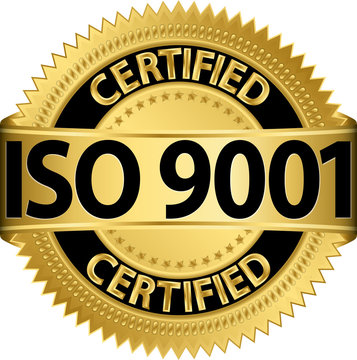ISO 9001 Certification: A Strategic Step Toward Quality Management in 2025

Strong 8k brings an ultra-HD IPTV experience to your living room and your pocket.
In the ever-evolving business landscape, staying competitive means more than offering good products or services - it requires a deep, ongoing commitment to quality. As we look ahead to 2025, organizations across every sector are recognizing that ISO 9001 certification isn't just a formality. It's a strategic move that fosters efficiency, builds trust, and drives long-term success.
With increased global competition, rapidly shifting customer expectations, and rising compliance demands, quality management is becoming a cornerstone of sustainable growth. If your organization is preparing for what lies ahead, now is the time to understand the full potential of the ISO 9001 quality management system and what it can do for your business.
What Is ISO 9001 Certification?
ISO 9001 is the internationally recognized standard for quality management systems (QMS), established by the International Organization for Standardization (ISO). It sets out a framework for businesses to follow to ensure they consistently deliver products and services that meet both customer and regulatory requirements.
Rather than being a rigid set of rules, ISO 9001 is built around a flexible, principle-based approach. It allows organizations of all sizes and industries to tailor their quality management processes to their unique operational needs - all while adhering to global best practices.
Why ISO 9001 Matters in 2025
Looking toward the future, businesses are navigating a landscape shaped by digitization, customer empowerment, and constant disruption. This means that the stakes for delivering reliable, high-quality outcomes have never been higher. Here's why quality management in 2025 will rely heavily on standards like ISO 9001:
1. Customer Expectations Are Evolving
Customers today are more informed, selective, and vocal. They demand consistent experiences and rapid resolution of issues. ISO 9001 ensures organizations have the systems in place to meet - and exceed - those expectations with confidence.
2. Operational Efficiency Is Crucial
In a climate where margins are tight and competition is fierce, businesses must be lean and agile. The ISO 9001 quality management system helps streamline operations, reduce waste, and improve productivity without sacrificing quality.
3. Risk Management Is Now Strategic
One of the key enhancements in recent ISO 9001 revisions is the emphasis on risk-based thinking. This makes it easier for companies to identify, assess, and mitigate risks before they turn into real problems - something every business needs in a volatile world.
4. It Builds Organizational Resilience
Organizations that follow ISO 9001 standards are better equipped to respond to change - whether it's a market shift, new technology, or a global crisis. The ability to adapt while maintaining quality is a major asset in 2025.
Key Benefits of ISO 9001 Certification
For many companies, the decision to pursue ISO 9001 is driven by more than compliance - it's about creating a culture of quality. Some of the top benefits include:
Enhanced customer satisfaction and loyalty
Improved internal communication and accountability
Greater access to new markets and client opportunities
Increased efficiency and reduced operational costs
A strong foundation for continuous improvement
Moreover, many government contracts, corporate partnerships, and B2B tenders now list ISO 9001 certification as a prerequisite. So, having it can be a powerful differentiator.
What Does an ISO 9001 Quality Management System Include?
The ISO 9001 quality management system is based on seven core principles:
>Customer focus
>Leadership
>Engagement of people
>Process approach
>Improvement
>Evidence-based decision-making
>Relationship management
These principles work together to ensure that quality is not isolated to one department or function - it becomes embedded in every aspect of the business, from product design to customer service.
- Getting Certified: What to Expect
- The path to certification typically includes:
- Gap analysis - Identify current strengths and areas for improvement
- Documentation - Develop the necessary policies, procedures, and records
- Training and implementation - Ensure staff are aligned and systems are in place
- Internal audit - Assess your readiness for certification
- External audit - Get reviewed by an accredited certification body
While the process requires time and effort, the payoff is a more structured, confident, and competitive organization.
Conclusion
As 2025 approaches, forward-thinking organizations are asking themselves not just how to succeed, but how to sustain that success in a world that doesn't stand still. ISO 9001 certification provides the foundation needed to thrive in this future - with a system that prioritizes quality, fosters innovation, and drives real, measurable outcomes.
If your business is serious about improving processes, satisfying customers, and standing out in your industry, now is the perfect time to take the next step.
Note: IndiBlogHub features both user-submitted and editorial content. We do not verify third-party contributions. Read our Disclaimer and Privacy Policyfor details.







